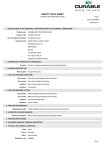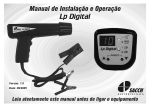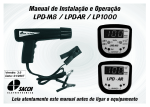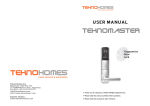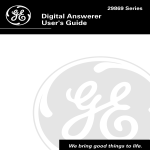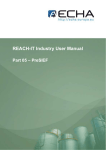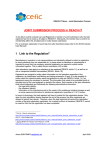Download Durable POWERCLEAN 400
Transcript
Usage Precautions: Storage: CAUTION Pressurised container. Do not expose to temperatures exceeding 50°C. Do not puncture or incinerate even when empty. Do not spray onto naked flame or any incandescent material. Spray in short bursts to prevent cooling of the can. Do not invert or shake the can during use. Spray in short bursts to prevent cooling of the can. Not recommended for surface coated mirrors. Store in a cool dry place away from all sources of heat including direct sunlight. 8. Exposure controls/personal protection Ingredient Name CAS No. Std. 8 hrs OES Lt Exp. St Exp. 10 min 1000 PPM (rec.) 1,1,1,2-Tetrafluoroethane 811-97-2 Ingredient Comments: OES: Occupational Exposure Standard LT EXP: Long term exposure limit. ST EXP: Short-term exposure limit. Personal protection Ventilation: No specific ventilation requirements noted, except this product must not be used in a confined space without good ventilation. Eye protection: Safety goggles/glasses are advised if there is a risk of eye contact, but not generally required under normal use. Respirators: None required if used in well ventilated areas. Protective gloves: No specific hand protection noted, but gloves may still be advisable. 9. Physical and chemical properties Appearance: Odour/Taste: Specific gravity: PH-Value: Flash Point: Flash point method: Aerosol . Characteristic (Water=1) N/A N/A Will not flash N/A @ 20°C 10. Stability and reactivity Conditions to avoid: Materials to avoid: Hazardous Decomposition products: Avoid heat, flames and other sources of ignition. Powdered metal. Alkali metals. Alkali earth metals Product burning occurs with the emission of a highly toxic and corrosive gas (HF). 11. Toxicological information Inhalation: Eye contact: Skin contact: Ingestion: High concentration of vapour may cause dizziness, nausea and headaches. Liquid splashes may result in the freezing of eye tissue and fluids. Large quantities may lead to frost bite. Will cause freezing of the mouth and possibly internal damage. This is unlikely to occur due to the nature of the product. 12. Ecological information Water hazard classification: Global warming potential: Ozone depletion potential: Discharge of product will enter the atmosphere and will not result in long term aqueous contamination. 0.28 (R11=1), (1,1,1,2-Tetrafluoroethane) 0 (R11=1) (1,1,1,2-Tetrafluoroethane) 13. Disposal considerations Disposal method: Do not puncture or incinerate even when empty. Dispose of in accordance with Local Authority requirements. 14. Transport information ROAD UN No. ADR Class: 5738 1950 2 CEFIC TEC (R) No: ADR Item No. AIR UN Air: Air transport class No. Air pack GR: SEA UN Sea: Sea transport class No. IMDG Page No. Sea pack GR: 20G26-1 5ØA 1950 2 -1950 2 2102 -- 15. Regulatory information According to EEC Directives 67/548/EEC the product is labelled as follows: Symbol: Risk Phrases: Not classified Safety Phrases: S-24/25 Avoid contact with skin and eyes. S-23 Do not breathe vapour/spray S-51 Use only in well ventilated areas. UK Regulatory References: The Control of substances Hazardous to Health Regulations 1988. Chemicals (Hazards Information & Packaging) Regulations 1996. 16. Other information The directions are given assuming the product is used for it's normal purpose. It is however, always the responsibility of the user to comply with national legislation's. The information in this Safety Data Sheet should be understood as a description for safe handling of the product and is no guarantee for the properties of the product. SDS No. 2434A Revision Date: 27.01.2000 Revision No: 3 Revision Comments: Revised hazard information. SDS No: 2434A Revision Date: (dd-mm-yy) 27.01.2000 Revision No: 3 Revision Comments: Revised hazard information. 5738



